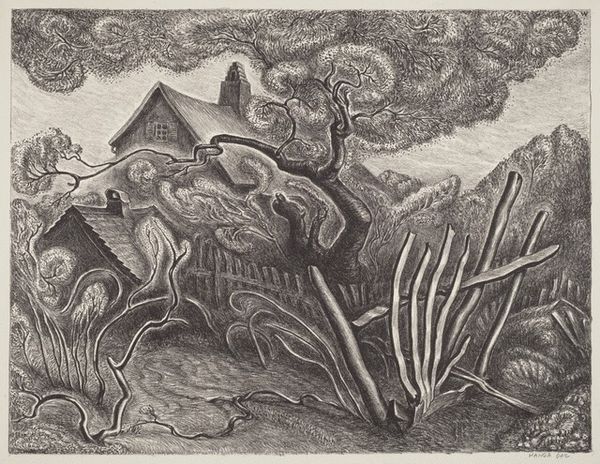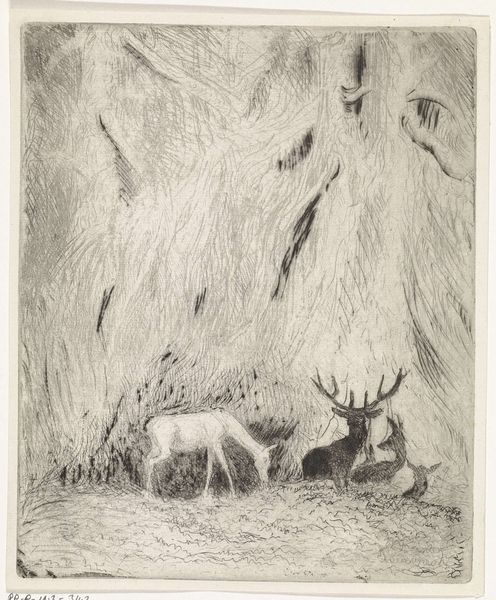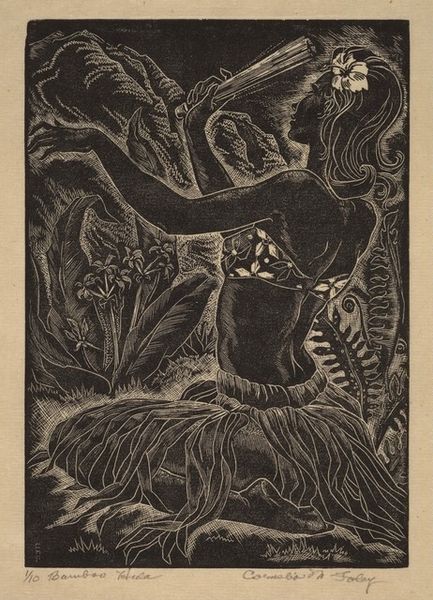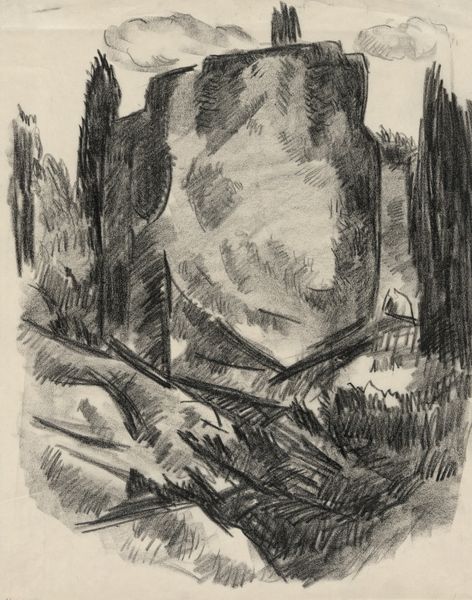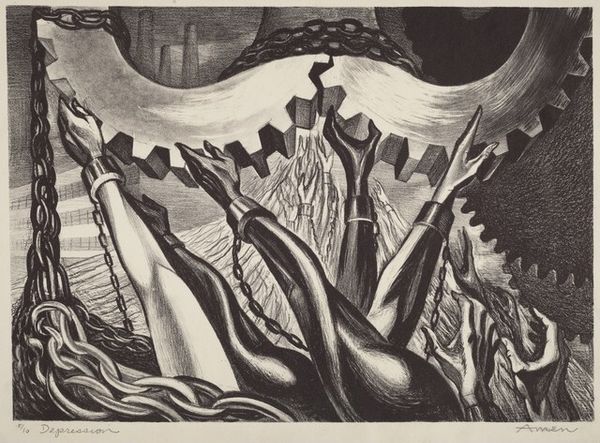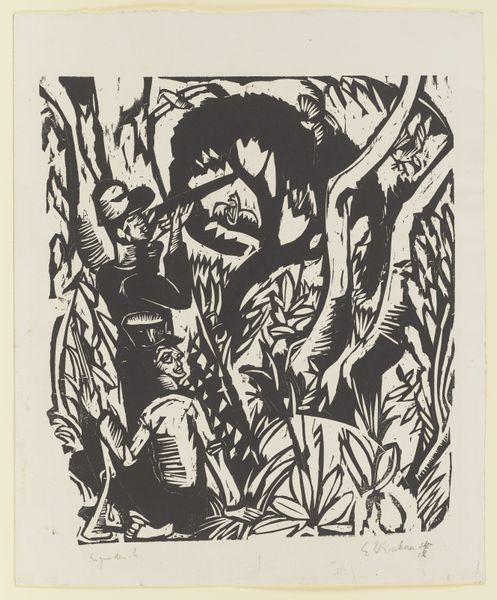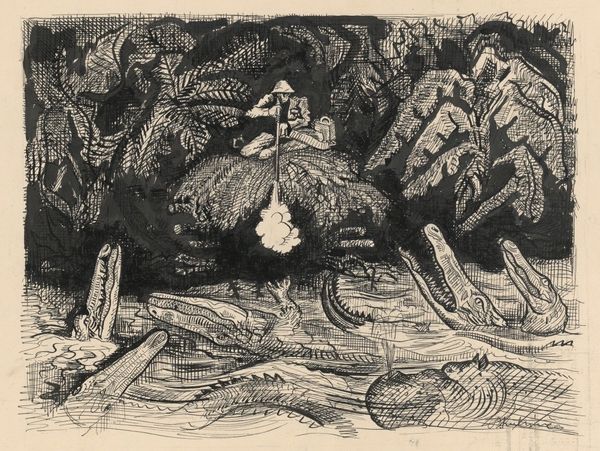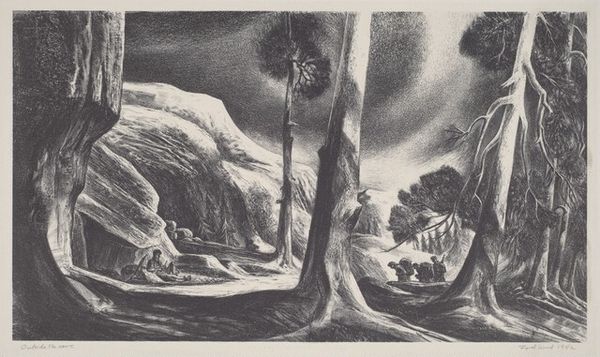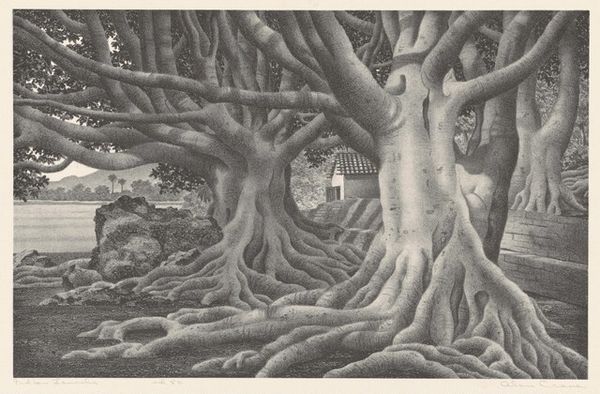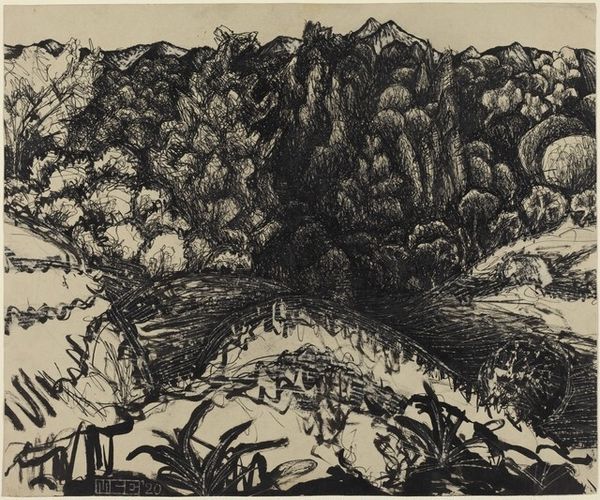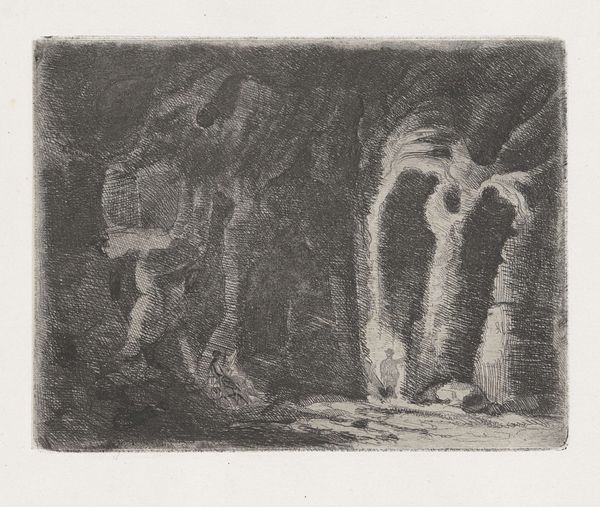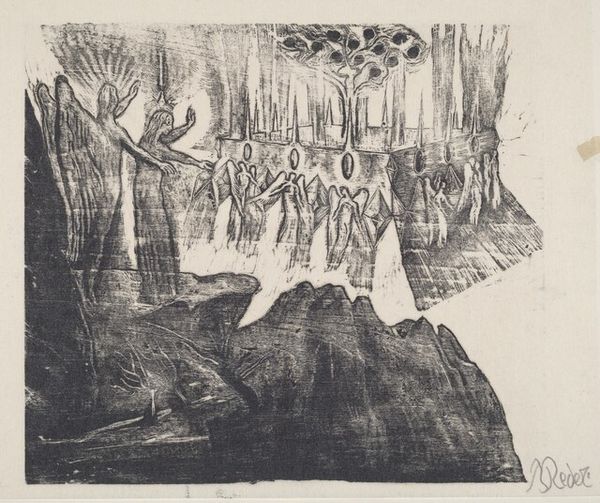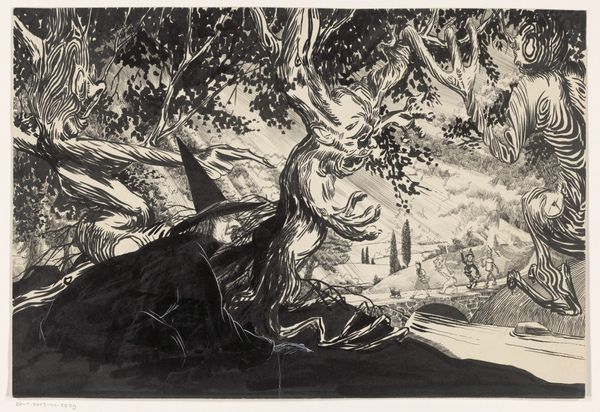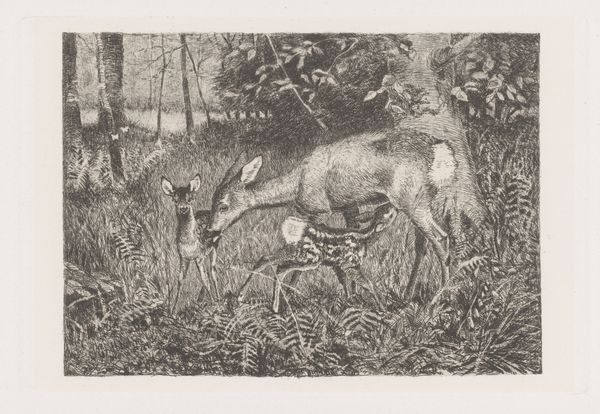
drawing, print, woodcut
#
drawing
# print
#
pencil sketch
#
landscape
#
pencil drawing
#
woodcut
#
line
#
cityscape
#
surrealist
#
realism
Dimensions: image: 199 x 251 mm sheet: 287 x 444 mm
Copyright: National Gallery of Art: CC0 1.0
Editor: This is Hyman Warsager's "Prospect Park," a woodcut print created sometime between 1935 and 1943. I’m struck by the stark contrast between light and shadow. The park seems so serene, almost dreamlike, yet the city looms in the background. What cultural undercurrents do you think are at play here? Curator: I notice how the city's architecture punctuates the horizon—a reminder of urban life amidst natural refuge. This tension itself speaks to a cultural memory deeply embedded in the American psyche: the pastoral ideal juxtaposed with industrial reality. Editor: So, the park becomes a sort of visual symbol, then? Curator: Absolutely. Think about what a park *represents* – escape, leisure, community. Now consider its visual construction: the deliberate paths, the curated nature. It reflects our cultural need to control and organize even our escapes. Does the artist perhaps imply a subtle critique of that control? Editor: The dark lines in the woodcut give a slightly unsettling feeling – almost like anxiety. It also uses symbols to make meaning: city vs nature, work vs leisure… Are the shadows in this piece symbolic in any way? Curator: Precisely! Shadows can represent the hidden, the unknown. Warsager uses shadow to complicate our experience of the park, suggesting undercurrents beneath the surface of recreation and leisure. The dark lines aren’t merely aesthetic; they're psychological, imbuing a familiar landscape with emotional depth. How does that knowledge alter your perception? Editor: It definitely adds another layer. I initially saw it as simply a pleasant landscape, but now it seems more complex and unsettling. Curator: That's the power of symbolic language in art! It transforms the mundane into a mirror reflecting our inner worlds. Editor: This was illuminating, thank you. I now see how much symbolic weight a seemingly simple landscape print can carry.
Comments
No comments
Be the first to comment and join the conversation on the ultimate creative platform.
